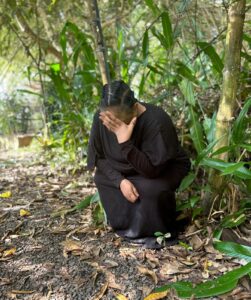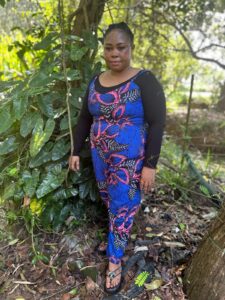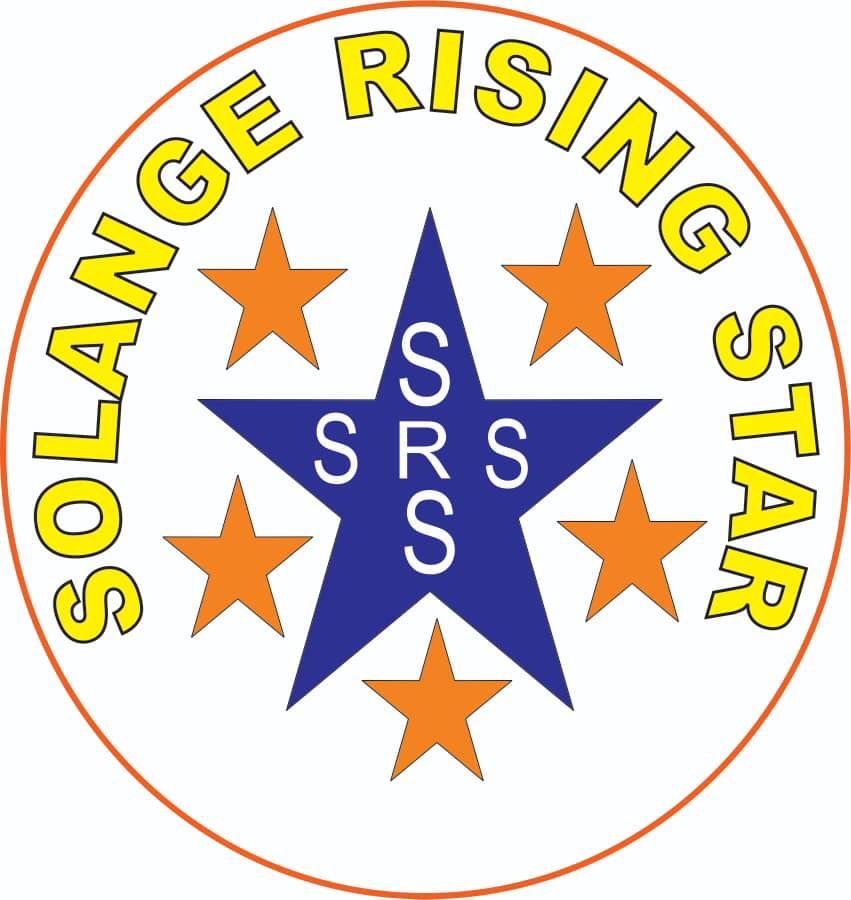Advocacy Through Solange Rising Star
1. Introduction: What Advocacy Means to Us
At Solange Rising Star, advocacy is the heartbeat of our mission. We believe in amplifying the voices of survivors, challenging harmful norms, and driving systemic change to create a world free from violence and discrimination. Our advocacy efforts focus on:
- Educating Communities: Raising awareness about the root causes and impacts of sexual and domestic violence.
- Empowering Survivors: Providing platforms for survivors to share their stories and become advocates themselves.
- Policy Influence: Collaborating with stakeholders to push for policies that protect and support survivors.
2. Our Advocacy Approach
We take a multifaceted approach to advocacy, rooted in our values of resilience, justice, empowerment, and unity. Our initiatives include:
- Community Outreach Programs: Engaging communities through workshops, talent competitions, and school clubs to spark conversations about gender-based violence.
- Survivor-Led Campaigns: Encouraging survivors to take an active role in spreading awareness and educating others.
- Safe Spaces for Dialogue: Creating environments where survivors and their families can openly discuss their experiences and find solutions.
. Key Advocacy Initiatives
- Kacherkatan (The Butterfly Program): A transformative initiative that helps survivors find their strength and voice.
- Back-to-School Talent Competitions: Using creative expression to educate young people about social ills like domestic violence and sexual abuse.
- ECHO Rehabilitation Program: Working with offenders to transform them into advocates for change, breaking cycles of violence.
- Advocacy in Action
Share specific examples of how your advocacy efforts have made a difference:
- Community Impact: “Since 2022, we’ve empowered over 200 women through our Women Corner Association WhatsApp group, providing education on gender-based violence and fostering open family communication.”
- Policy Advocacy: “We’ve partnered with local organizations and authorities to ensure survivors have access to justice and support.”
- Youth Advocacy: “11 students from our talent competition are now active advocates in their schools and families.”
- How You Can Join Our Advocacy Efforts
Invite readers to get involved:
- Share Your Story: Survivors can inspire others by speaking out.
- Volunteer: Become an advocate in your community by joining our programs.
- Support Our Work: Donate or fundraise to help us expand our advocacy initiatives.
- Spread Awareness: Use your voice on social media or at events to amplify our message.
- Looking Ahead: Our Vision for Advocacy
“Our goal is to create a global movement that transforms survivors into changemakers, ensuring every voice is heard and every story has the power to inspire change.”
UNFOLD YOUR WINGS BY NDIP SOLANGE

The Resilient Wings of Kacherkatan
In a peaceful, lush garden, a tiny butterfly named Kacherkatan was struggling to break free from her cocoon. The walls around her seemed thick and impenetrable, and no matter how hard she tried, she felt stuck. As time passed, Kacherkatan began to lose hope, believing she might never escape.
But one day, a gentle breeze blew through the garden and whispered softly in her ear:
“You are stronger than your struggles, Kacherkatan. Your wings are waiting.”
These words filled Kacherkatan with a newfound sense of determination. With all the strength she could gather, she pushed one last time, and finally, the cocoon began to tear. Slowly but surely, her vibrant wings unfolded, showing their beauty to the world. Her wings, however, were not perfect there were delicate tears in them, marks left from her struggle. Yet, those scars became a symbol of her resilience.
The Cocoon: The Pains of Survivors
For survivors of sexual violence, the cocoon represents the emotional and physical pain they endure. Inside this dark space, they often face overwhelming feelings of:
- Fear and anxiety
- Shame and self-blame
- Silence and isolation
- Physical and emotional pain
- Loss of identity and purpose
But just like Kacherkatan, survivors can begin their transformation even in this darkness.
The Connection to Solange Rising Star
Kacherkatan’s journey reflects the experiences of survivors supported by Solange Rising Star. Like the cocoon that once trapped her, the trauma of sexual violence can silence and imprison survivors. But with the right support, courage, and resilience, survivors can break free, unfolding their wings to find strength and purpose again.
At Solange Rising Star, we provide the gentle breeze that whispers encouragement. Our programs give survivors the tools to heal, to break free from their cocoon of pain, and to rise stronger than ever before.
Solange Rising Star’s Interventions
Inspired by Kacherkatan’s journey, Solange Rising Star helps survivors move from darkness to light through various stages of empowerment:
- Cocoon (Prison Outreach): Reform Through Arts
Survivors and remorseful offenders participate in arts and music workshops. These activities help them heal, express their emotions, and learn about justice and advocacy. After release, many of them use their newfound strength to advocate for change. - Emergence (School Clubs): Empowered Youth
Through education and peer support, we empower young people to prevent sexual violence. Our school clubs teach self-defense and raise awareness, ensuring the next generation knows how to protect themselves and support each other. - Flight (Talent Show Competition): Break the Silence
Survivors use their talents in music, dance, poetry, and theater to share their stories and spread awareness about sexual violence. This gives them a platform to turn their pain into strength while encouraging others to speak out. - Bloom (Community Engagement)
We run community workshops, training local leaders, law enforcement, and organizations to better understand and combat sexual violence. This ensures survivors are supported by their community, not silenced by it. - Wings (Economic Empowerment): Rise Above
Survivors are given the opportunity to rebuild their lives through vocational training and income-generating projects. Whether it’s through farming or crafting, they gain the financial independence needed to rise above their past. - Support Services
Our 24/7 hotline, counseling, legal aid, and safe spaces provide constant support to survivors. These services ensure they never have to face their journey alone. - We also aim at providing scholarships to aspiring law students from underserved communities, and those from our anti rape school clubes empowering them to advocate for survivors of sexual violence. We aim to increase access to legal education and create a pipeline of skilled lawyers focused on championing survivor rights. By alleviating financial burdens, we equip future attorneys to promote justice and accountability while fostering a new generation of advocates dedicated to combating sexual violence
 Epilogue: Kacherkatan’s Flight
Epilogue: Kacherkatan’s Flight
Kacherkatan, meaning butterfly in the Bayangi language of Manyu Division, South West Region of Cameroon, is the name of Solange Rising Star’s flagship project. It symbolizes the transformation survivors of sexual violence undergo, much like a butterfly emerging from its cocoon. The project is designed to empower survivors, helping them break free from trauma and rebuild their lives with strength and dignity.
Kacherkatan’s story is proudly displayed on the walls of Solange Rising Star as a reminder to every survivor that scars are a sign of strength, not weakness. Just like Kacherkatan, survivors are encouraged to unfold their wings, embrace their resilience, and soar towards a brighter future.
“Your scars are proof of your strength, not your weakness.
Unfold your wings, dear survivor. You are meant to soar.”

At Solange Rising Star, we work together to dismantle the toxic norms that enable rape culture. By uniting survivors, advocates, and communities from around the world whether from Asia, Europe, Africa, America, or elsewhere—we build a powerful force of change.
Together, we aim to create a world where rape is eradicated from our communities, where it exists only as a word in the dictionary, and never in real life. In this united effort, we offer hope, strength, and justice to every survivor, ensuring that they too can rise and soar, just like Kacherkatan.
Through the Kacherkatan Project, survivors receive counseling, vocational training, and community support, allowing them to reclaim their voices and become advocates for change. The initiative not only supports their healing but also empowers them to rise above their past, becoming active agents of transformation in their communities.Until the can say i am asurvivor and not a victim,a butterfly and not a caterpilar!
Resources for Survivors
Here are some crucial resources to help survivors in kerala Thiruvananthapuram:
- National Support Services:
- National Commission for Women (NCW): 011 232 37166
- National Domestic Violence Helpline: 181
- Childline India: 1098
- Local Survivor Support:
- Sahayatrika (Thiruvananthapuram): 0471 232 3223
- Anweshi (Kozhikode): 0495 237 0404
In the South West Region of Cameroon, survivors of sexual violence can report incidents to the following key institutions and support services:
- Police Stations and Gendarmerie: Local police stations and gendarmerie posts can assist in filing a formal report of sexual violence. Special gender-based violence units may be available in certain areas.
- Regional Delegation of Women’s Empowerment and the Family (MINPROFF): This government office supports women and families, providing legal assistance and referrals for survivors of violence.
- Buea Regional Hospital: Medical services at Buea Regional Hospital offer treatment for injuries, prevention of STIs, and pregnancy prevention following an assault. Forensic exams (rape kits) can also be conducted here to collect evidence.
- Specialized NGOs and Helplines:
- Reach Out Cameroon: This organization provides psychosocial support, legal aid, and guidance for survivors of gender-based violence.
- RENATA (Reseau National des Associations des Tantines): Active in the South West Region, RENATA offers counseling and peer support for survivors.
Here are some prominent global organizations that fight against sexual violence and rape, along with their contact information:
- RAINN (Rape, Abuse & Incest National Network)
- Focus: Offers support to survivors of sexual violence in the United States.
- Website: org
- Contact:
- National Sexual Assault Hotline: 1-800-656-HOPE (4673)
- Email: info@rainn.org
- UN Women
- Focus: Advocates for gender equality and works to end violence against women globally.
- Website: org
Email: info@unwomen.org
- Amnesty International
- Focus: Advocates for human rights, including the fight against sexual violence and gender-based violence.
- Website: org
- Email: contactus@amnesty.org
- World Health Organization (WHO)
- Focus: Addresses sexual violence as a public health issue and provides resources for prevention and support.
- Website: int
- Email: info@who.int
- International Rescue Committee (IRC)
- Focus: Provides support to survivors of violence in crisis-affected areas, including programs addressing sexual violence.
- Website: org
- Email: info@rescue.org
- Women for Women International
- Focus: Empowers women survivors of war and conflict, providing support for those affected by gender-based violence.
- Website: org
- Contact:
- Email: info@womenforwomen.org
- Equality Now
- Focus: Works to end violence and discrimination against women and girls through legal advocacy and awareness campaigns.
- Website: org
- Contact:
- Email: info@equalitynow.org
These organizations offer various resources, support, and advocacy efforts to combat sexual violence and promote the rights of survivors globally.
Understanding Stereotypes Faced by Survivors of Sexual Violence
Negative Stereotypes:
- Blame: “They asked for it” or “They were reckless.”
- Shame: “They should be ashamed” or “They’re tainted.”
- Weakness: “They’re vulnerable” or “They can’t protect themselves.”
- Dishonesty: “They’re lying” or “They’re attention-seeking.”
- Promiscuity: “They’re promiscuous” or “They have loose morals.”
Cultural Stereotypes:
- Victim-blaming in patriarchal societies.
- Stigma surrounding sexual violence in conservative cultures.
- Assumptions about survivors’ sexual orientation or gender identity.
- Expectations for survivors to conform to traditional gender roles.
Societal Stereotypes:
- Assumptions about survivors’ socioeconomic status.
- Stereotypes about survivors’ mental health or stability.
- Beliefs about survivors’ ability to recover or heal.
- Lack of understanding about trauma and its effects.
Institutional Stereotypes:
- Law enforcement skepticism or dismissal.
- Medical professionals’ lack of training or sensitivity.
- Judicial system’s inadequate response or bias.
- Media portrayal perpetuating harmful stereotypes.
Internalized Stereotypes:
- Self-blame and guilt.
- Shame and embarrassment.
- Fear of not being believed.
- Doubting one’s own experiences.
Consequences of These Stereotypes
These damaging stereotypes can:
- Revictimize survivors.
- Discourage reporting incidents.
- Hinder healing and recovery processes.
- Perpetuate harmful attitudes and behaviors.
The Importance of Challenging Stereotypes
To support survivors, it is essential to:
- Promote education and awareness.
- Create supportive communities.
- Provide trauma-informed care.
- Empower survivors to share their voices.
Principles of Trauma-Informed Care (TIC)
Key Principles:
- Safety: Establish a safe environment.
- Trust: Foster trust through transparency and consistency.
- Choice: Empower survivors to make informed decisions.
- Collaboration: Work with survivors as equal partners.
- Empowerment: Focus on survivors’ strengths and resilience.
Guiding Values:
- Cultural sensitivity and awareness.
- Compassion and empathy.
- A non-judgmental attitude.
- Flexibility in service provision.
- Accountability in support and services.
Trauma-Informed Practices
- Universal precautions (assuming everyone may have experienced trauma).
- Trauma screening and assessment.
- Individualized care planning.
- Emotional regulation techniques.
- Coping skills development.
- Peer support groups.
- Family and community involvement.
Benefits of Trauma-Informed Care
- Improved survivor outcomes.
- Enhanced trust and engagement.
- Reduced trauma symptoms and stress.
- Increased resilience.
- Better well-being for service providers.
Applications Across Sectors
- Healthcare
- Mental health services
- Social services
- Education
- Justice systems
- Community organizations
Resources for Trauma-Informed Care
- National Center for Trauma-Informed Care (NCTIC).
- Trauma-Informed Care Project (TICP).
- Substance Abuse and Mental Health Services Administration (SAMHSA).
- World Health Organization (WHO) guidelines.
Steps to Implement TIC
- Conduct organizational self-assessment.
- Develop trauma-informed policies and procedures.
- Train staff and service providers.
- Engage survivors in planning and evaluation.
- Continuously monitor and improve services.
Here are some important questions about handling rape cases involving family, friends, and community members:
Family Members:
- What will you do if your spouse or partner abuses your child?
- How will you support a family member who reveals they were raped by another family member?
- What if your parent or sibling commits rape within your family?
- How do you handle loyalty to your family while seeking justice for the survivor?
- What kind of help will you seek for the survivor and your family?
Close Friends:
- What if your best friend admits to raping someone you know?
- How will you respond if your friend’s child accuses them of sexual abuse?
- How will you support a friend who was raped by someone close to you?
- Can you still be friends with someone convicted of rape?
- How will you handle being in social situations with the rapist?
Community Members:
- What will you do if a respected community leader is accused of rape?
- How will you support a survivor who is afraid of community backlash?
- What can you do to make your community safe and supportive for survivors?
- How will you fight against victim-blaming in your community?
- What resources can you provide to help survivors?
Difficult Situations:
- What if the rapist is the family’s main source of income?
- How will you deal with feeling torn between supporting the survivor and the rapist?
- What if the survivor wants to keep the abuse a secret?
- How will you cope with your own feelings of guilt or shame as a family member or friend?
- What long-term support will you offer for healing?
Breaking the Silence:
- How can you create opportunities to talk openly about rape and consent?
- How will you challenge harmful cultural beliefs?
- How will you help share survivors’ stories?
- What will you do to push for changes in policies?
- How will you help survivors seek justice?
General Advice on Handling Rape Cases Involving Family, Friends, and Community Members
1. Always Center the Survivor
No matter who the perpetrator is—family, friend, or community leader—your primary responsibility is to listen to, believe, and support the survivor. Their safety, emotional wellbeing, and decisions should always come first. Avoid pressuring them to take actions they’re not ready for, but do ensure they know their rights and the options available to them.
2. Break the Cycle of Silence
Sexual violence thrives in silence. As difficult as it is, breaking the silence is the first step to change. Start conversations in your homes, schools, and community spaces. Use storytelling, arts, and dialogue to normalize discussions around consent, boundaries, and accountability.
3. Loyalty Should Not Enable Abuse
Loyalty to a family member or friend should never come at the cost of justice or the survivor’s wellbeing. Challenging someone close does not mean you hate them—it means you are holding them accountable. It is possible to love someone and still demand they face the consequences of their actions.
4. Support Over Shame
In cases where the survivor wants secrecy, or when the abuser is a key figure like a breadwinner or leader, the pressure can be intense. But shame should never override justice. Survivors often carry misplaced guilt. As an advocate, reaffirm their courage and remind them it’s not their fault.
5. Build a Support System
Help survivors access:
Medical care
Psychosocial support (therapy, counseling)
Legal aid
Safe spaces or shelters Educate families and communities on how to stand by the survivor, not the abuser. And remember, healing is a long-term journey—don’t disappear after the first steps.
6. Challenge Harmful Norms
Speak out against victim-blaming, toxic masculinity, and rape culture. Equip your community with education about:
Consent
Gender equality
The effects of SGBV on individuals and communities
Be willing to challenge religious or cultural narratives that protect abusers or silence survivors.
7. Accountability Is Love
True love and community care mean holding people accountable for their actions, even when it’s hard. Confronting a rapist—especially one you know—is not betrayal; it is justice. If someone you care about commits sexual violence, your responsibility is not to protect them, but to guide them toward accountability and change.
8. Promote Policy Change
Advocate for stronger laws, better reporting systems, and survivor-friendly judicial procedures. Push schools, workplaces, religious groups, and government to take proactive steps against SGBV.
9. Take Care of Yourself, Too
Supporting survivors—especially when you’re emotionally connected—can take a toll. Seek your own support system. Guilt, shame, confusion, and helplessness are valid emotions. Processing them with a counselor or trusted ally can help you stay strong.
10. Be the Change
Lead by example. Be the family member, friend, or neighbor who speaks up, intervenes, educates, and acts. One voice may not change the world, but it can change someone’s world.
Self-Reflection:
- What biases or assumptions do you have about rape and survivors?
- How will you manage your own emotions when dealing with rape cases?
- What training or education do you need to better support survivors?
- How will you take care of yourself while supporting survivors?
- What personal boundaries will you set to stay healthy?
Answering these questions honestly will help you:
- Understand survivors better.
- Create a supportive environment.
- Challenge harmful cultural norms.
- Fight for justice and policy changes.
- Build a community focused on respect and consent.
Empowering Affirmations
I am a survivor, not a victim.
I deserve love, respect, and safety.
My voice can change the world.
Repeat these affirmations daily to empower your healing journey.
Legal Rights and Case Management for Survivors
This section summarizes the key legal steps involved in managing a rape case:
- Reporting the Crime: The first priority is the survivor’s safety. Rape can be reported to police, specialized units, or national helplines.
- Medical Examination and Evidence Collection: Immediate medical care and a forensic exam are critical for gathering evidence.
- Police Investigation: Authorities will investigate the crime, gathering evidence and statements from the survivor and the accused.
- Legal Proceedings: If enough evidence is gathered, the accused is charged, and the case goes to trial.
- Verdict and Sentencing: The court will deliver a verdict based on the evidence, and if found guilty, the rapist will be sentenced.
- Survivor Rights and Support: Throughout the process, survivors are entitled to ongoing psychological, emotional, and legal support.
Conclusion: Inspiring Hope and Unity
Survivors are not alone, and we are stronger together. Solange Rising Star is here to guide, support, and empower you on your journey of healing. Together, we can cultivate a world free of sexual violence, where every survivor is heard, respected, and empowered.
